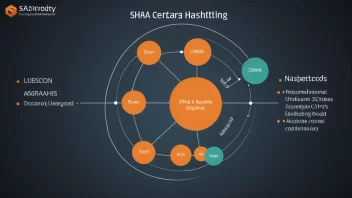Introduction
As consumers become increasingly aware of the impact of their purchasing decisions, ethical consumption has gained significant traction. Blockchain technology offers innovative solutions that can enhance transparency, traceability, and accountability in supply chains. This article delves into the top five ways blockchain promotes ethical consumption, providing insights into its transformative potential.
1. Enhanced Supply Chain Transparency
Blockchain's decentralized ledger ensures that all transactions are recorded in a transparent manner. This allows consumers to trace the origin of products, verify their authenticity, and understand the social and environmental impact of their purchases.
Example:
Companies like Everledger use blockchain to track the provenance of diamonds, ensuring that they are conflict-free and ethically sourced.
2. Improved Traceability of Products
With blockchain, every step of a product's journey can be recorded, from raw materials to final delivery. This traceability helps verify claims made by brands regarding sustainability and ethical practices.
Case Study:
Walmart utilizes blockchain to track food products through its supply chain, allowing for rapid response to food safety issues.
3. Empowering Ethical Brands
Blockchain can help smaller, ethical brands gain recognition and credibility in a crowded marketplace. By using blockchain to provide verifiable proof of their ethical practices, these brands can build trust with consumers.
Example:
Companies like Provenance enable brands to share their stories and supply chain data directly with consumers, fostering a deeper connection based on transparency.
4. Facilitating Fair Trade Practices
Blockchain technology can create direct links between producers and consumers, eliminating intermediaries and ensuring that producers receive fair compensation for their goods.
Case Study:
Organizations such as FairChain use blockchain to connect coffee farmers directly with consumers, ensuring that profits are distributed more equitably.
5. Encouraging Sustainable Practices
By providing data on environmental impact and ethical sourcing, blockchain encourages brands to adopt more sustainable practices. Consumers are empowered to choose products that align with their values.
Example:
Companies like CarbonChain use blockchain to measure and report on carbon emissions throughout the supply chain, helping brands to minimize their environmental footprint.
Conclusion
Blockchain technology is revolutionizing the way we approach consumption. By enhancing transparency, traceability, and accountability, it empowers consumers to make informed decisions and supports ethical brands. As blockchain continues to evolve, its role in promoting ethical consumption will likely expand, paving the way for a more sustainable and responsible marketplace.






